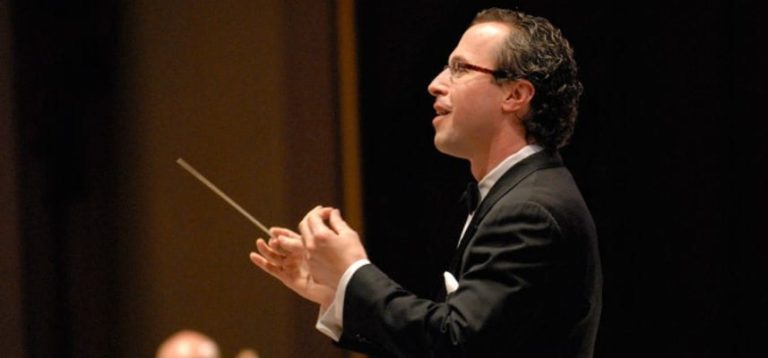The Albany Symphony Orchestra kicks off its 86th year in October with a gala performance from world-renowned pianist, Emanual Ax. Securing the Grammy-winning artist shows ASO Music Director David Alan Miller won’t be letting off the throttle to promote the brand of the orchestra he first joined in 1992.
 The past handful of years has made for an historic timeline for the orchestra. Miller and his performers debuted at Carnegie Hall in 2011, and have since played again. Less than two years later, the ASO welcomed world famous cellist Yo-Yo Ma to play with them in Albany. And, last January, the National Academy of Recording Arts and Sciences of the United States recognized the orchestra with a Grammy Award.
The past handful of years has made for an historic timeline for the orchestra. Miller and his performers debuted at Carnegie Hall in 2011, and have since played again. Less than two years later, the ASO welcomed world famous cellist Yo-Yo Ma to play with them in Albany. And, last January, the National Academy of Recording Arts and Sciences of the United States recognized the orchestra with a Grammy Award.
Last June, the Orchestra also earned their 31st American Society of Composers, Authors and Publishers (ASCAP) Award, receiving the John S. Edwards Award for Strongest Commitment to New American Music. The honor is bestowed upon orchestras of any size, pitting Albany’s troop against those from the metropolises of New York City, Boston, Philadelphia, Chicago and Los Angeles. The 31 awards the ASO has earned, is more than any other orchestra in the country.
Miller’s focus on playing contemporary American music has been stead-fast through the majority of his near 23-year career with the ASO. Miller said, this focus is what sets the ASO apart from other orchestras.
I was able to steal Mr. Miller away for a brief interview during a recent press conference at The Albany Palace Theatre.
Michael Hallisey: What has you most excited about the upcoming season?
David Alan Miller: I’m most excited about Emanual Ax kicking off the season, but I’m also particularly excited if you look at February, March. You’ve got all Beethoven for a solid week in February. Then you have this incredibly adventurous thing in March that is really as edgy as any orchestra is doing. To me that kind of reflects who and what we are. We’ve got the grand tradition of Beethoven, Tchaikovsky and Sibelius, and we’ve also got really exciting new things happening that other orchestras aren’t even beginning to try. I feel that’s what makes us so special. That’s what’s so exciting about is.
He’s been one of my absolute favorite artists for my whole life. And, he plays the classical repertoire – Mozart, Beethoven, Brahms, Chopin – better than anybody, I think. And, he’s never played with us, so I’m really excited to have him play with us. It’s a funny thing when we have these great artists like Yo Yo Ma or Josh Bell, it elevates our orchestra and our community. In a way, when you sit on the stage with Yo Yo Ma, suddenly the orchestra becomes virtually Yo Yo Ma level. The same with Manny Ax. So, having an artist of that stature and with that depth of knowledge and musical skill just elevates who and what we are, and makes us play like that. It’s a great educational tool for me and for the players, but it’s also a great community building thing to see the home orchestra with artists of that caliber and that stature really elevates who and what we are.
MH: The orchestra won a Grammy last year. What kind of opportunities present themselves with such an achievement?
DAM: It’s about building the brand and it’s about the perception, because not many orchestras in the country – especially when you go past the Big Six or the Big Seven – not that many orchestras have won Grammys. And, Grammys, as you know, people of all walks of life watch the Grammys and follow the Grammys. So, you’re in there with Beyoncé and Paul McCartney. Winning a Grammy sort of elevates us in a somewhat different way from playing with Yo Yo Ma. But, it’s all part of the same thing. If I had to list the three most important things we’ve done to enhance our visibility and brand in our community, and nationally, recently, they would be the two visits to Carnegie Hall for Spring for Music. We were the only orchestra to ever visit twice, so that really elevated our stature here. And, then playing with artists like Yo-Yo Ma, and then, as well, the Grammys. So those are three different ways to enhance the visibility of the orchestra in the community and in the larger, national discussion. They’ve done different but equally, powerful valuable things for us.
MH: You said yourself, the ASO has achieved so much even when compared to orchestras of larger cities. What do you attribute as the reason behind that success? Is it simply community support?
DAM: The community has absolutely supported the orchestra so generously; mainly by coming. That’s the best thing to do if one wants to support the local arts. You have to attend. And, we so appreciate the community in that. I also attribute our willingness, and our eagerness, and our commitment to do the best, living American music. Many orchestras spend 95 percent of their time playing dead Europeans, all of whom are great. We spend 50 percent, or 60 percent of our time playing dead Europeans and the rest of our time playing living Americans. And, so, all of our recording activities have been of new pieces that are not otherwise available, or haven’t been recorded. All of our commissioning and work, has really elevated our visibility. … So I attribute all our national successes to the daring, artistic projects we pursue.”


Comments are closed.